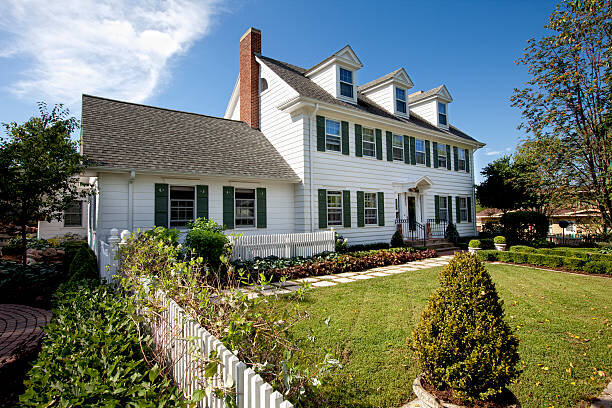
Introduction
Selling your house is a significant financial transaction, and understanding the costs associated with listing your property is crucial for a successful sale. While many homeowners are aware of the basic expenses, such as real estate agent commissions and closing costs, there are various other factors to consider when calculating the total cost of selling a house in 2024. In this article, we will break down the expenses involved in listing your house and provide valuable insights into how much it will truly cost you.
1. Real Estate Agent Commissions
One of the most significant expenses when selling your home is the real estate agent’s commission. In most cases, the seller is responsible for paying the commission for both their agent and the buyer’s agent. The typical commission rate ranges from 5% to 6% of the final sale price, which is then split between the two agents. On a $300,000 home sale, this could amount to $15,000 to $18,000.
When it comes to commission rates in the real estate industry, it’s crucial to bear in mind that these fees can fluctuate significantly based on your geographical location and the prevailing conditions of the housing market. Therefore, it’s highly recommended to engage in open and proactive discussions with your chosen real estate agent regarding this commission fee from the very outset of your partnership. This proactive approach will not only foster transparency but also ensure that you arrive at a mutually agreeable commission structure that aligns with your specific needs and the prevailing market dynamics.
2. Staging and Home Repairs
Staging and home repairs are significant components to consider when estimating the expenses associated with listing your house in 2024. Staging involves making your home more appealing to potential buyers through services like professional photography, staging consultations, and cosmetic updates, and its costs can vary based on the extent of the staging required.
Home repairs and renovations are another critical consideration, ranging from minor fixes like leaky faucets to more extensive projects like roof repairs or kitchen upgrades. The expenses for these improvements can fluctuate widely, impacting your budget for the sale. Properly assessing and budgeting for staging and repairs is essential to enhance your property’s marketability and achieve the best possible sale price.
3. Pre-Sale Inspections and Appraisals
Pre-sale inspections and appraisals are pivotal elements to factor into the costs of listing your house in 2024. Pre-sale inspections, including general home, pest, and mold inspections, are valuable for identifying potential issues before listing. These inspections can range from a few hundred to over a thousand dollars, depending on the extent of testing required. Additionally, sellers may face appraisal costs, typically between $300 to $500, as some buyers request appraisals to ensure the property’s value aligns with the sale price. Being aware of these expenses is essential for an accurate assessment of the financial aspects of selling your home.
Furthermore, it’s worth mentioning that certain prospective buyers may opt to request a comprehensive home appraisal as part of their due diligence process to ascertain that the property’s assessed value closely matches the listed sale price. These appraisal assessments are an essential step in the buying process, providing both buyers and sellers with an unbiased evaluation of the property’s worth. However, it’s important to note that these appraisal services do come with associated costs, typically falling within the range of $300 to $500. While this expense may seem like an additional financial consideration, it can prove invaluable in ensuring a smooth and fair transaction by validating the property’s market value and helping all parties involved make informed decisions.
4. Marketing and Advertising
To maximize your chances of attracting potential buyers and successfully selling your property, effectively marketing and advertising your house is crucial. “Listing Your House” prominently in real estate platforms, social media channels, and professional photography can significantly enhance its visibility and desirability. While traditional methods like yard signs and brochures can be cost-effective, investing in online marketing strategies may require a more substantial budget, ranging from a few hundred to a few thousand dollars. Ensuring that “Listing Your House” is strategically incorporated into your marketing efforts will help you reach a wider audience and increase the likelihood of finding the right buyer for your property.
5. Closing Costs
Closing costs are an integral part of the expenses involved in listing your house in 2024. These costs encompass fees like title search and insurance, escrow services, attorney fees, recording fees, transfer taxes, and prorations for property taxes and homeowners’ association dues. While they are typically shared between the buyer and seller, it’s essential for sellers to consider their portion of these expenses when calculating the overall cost of selling their property, as they can collectively amount to approximately 2% to 5% of the final sale price. Understanding and planning for these closing costs is vital for a well-managed and financially sound home sale.
6. Taxes
Depending on your location and specific circumstances, you may be subject to certain taxes when selling your home. Capital gains tax, transfer tax, and property tax prorations can all impact your final expenses. It’s crucial to consult with a tax professional or real estate attorney to understand the tax implications of your home sale and how they will affect your bottom line.
7. Holding Costs
Holding costs are a crucial yet often overlooked component when calculating the expenses associated with listing your house in 2024. While your home is on the market, you’ll still need to cover ongoing expenses like mortgage payments, property taxes, homeowners’ insurance, and utilities. These seemingly small, recurring costs can add up significantly during the selling process and should be factored into your overall budget. Failing to account for holding costs can impact your bottom line and potentially reduce the overall profit from your home sale. Therefore, it’s essential to include these expenses in your financial planning to ensure a smoother and more financially viable selling experience.
Conclusion
When you’re contemplating listing your house in 2024, it’s crucial to factor in all the associated expenses to ensure a smooth and financially sound transaction. From real estate agent commissions and staging to pre-sale inspections, appraisals, closing costs, and holding costs, every detail matters. By addressing these costs comprehensively and working with professionals who understand the intricacies of the real estate market, like SellHouseNowCash.com, you can navigate the selling process confidently and maximize the return on your investment. Proper financial planning and consideration of all expenses will help you achieve a successful and profitable sale of your property in the ever-evolving real estate landscape of 2024.

